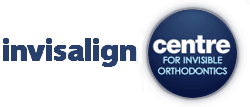Having crooked teeth can put a lot of impediments on your quality of life. Crooked teeth can impede on your self-esteem, your dental health, and can even affect your ability to speak correctly and confidently. Most people don’t think of teeth playing a pivotal role in your ability to articulate words properly.
We lightly touched on this in a previous blog. Today, we want to delve deeper into the topic of how your teeth affect your quality of speech. While speech therapy is one way to combat speech problems, another way to help your speech is by having your jaw and teeth aligned.
How Your Teeth Affect Your Speech
Your teeth in tandem with your lips, tongue, and palette form sounds to produce speech. A good portion of speech is created when we curl or press our lips and tongue against your teeth. If your teeth are misshapen, overcrowded, or you suffer from jaw conditions, it can be devastating to your speech. Here are the most common dental misalignments, and how they can impact your speech:
- Over bites. Overbites are a common jaw misalignment that require orthodontic intervention. You’ve probably heard this stigmatized as being “bunny rabbit teeth,” which occurs when your top fron teeth protrude far over your bottom teeth. In the orthodontic world, we call this “overjet.” Overjets are caused by genetics, bad oral health habits, or bone development.Overbites are usually correlated to over-crowding on the top arch, and they can affect your ability to create tongue-tip sounds and sibilants. Sibilants are sounds that make the “s” or the “s” With that being said, people with overbites tend to make a “th” sound, instead. So, instead of saying “the sibilant hiss of a snake,” a person with an overbite might say “the thibilant hith of a sthnake,” because of their inability to push air between their bottom and top arches.
- Under bites. As the name implies, underbites are the opposite of overbites. With this jaw misalignment, the lower teeth protrude over the front teeth. This is commonly stigmatized as “bulldog teeth.”Underbites are typically caused by missing upper teeth, an overgrown bottom jaw, or both of them. Underbites affect alveolar sounds, so “t”, “d,” and “n.” This is because people with underbites can’t reach the top ridge of the roof of their mouth with their tongue.
- Open bite. As the name implies, open bites occur when it’s physically impossible to close your top and bottom arches of teeth. This typically stems from excessive thumb sucking as a child or a genetically abnormal jaw structure.Like an underbite, open bites tend to affect your ability to produce alveolar sounds, which can cause an interdental lisp. When you suffer from an openbite, it makes it difficult to control the airflow out of your mouth. This can be fixed by orthodontic treatment, but it might also need speech therapy to strengthen your tongue to naturally push air out of the “alveolar ridge” (the front or bottom top ridge of the mouth.)
- Gapped teeth. Gapped teeth occur by abnormal growth in the jaw. Sometimes it’s caused when missing teeth cause your remaining teeth to shift into the empty spots. This can cause you to make “whistling sounds” when you talk. You know, the song “All I want for Christmas is my two front teeth,” in which the child singer sings with an obvious whistle? This is the kind of speech impediment that is created when people suffer from gapped teeth.
- Overcrowded teeth. Overcrowding happens when your jaw is not large enough to house the many teeth that grow in. This causes your teeth to turn sideways and protrude outwards in an effort to fit in the jaw line. Sometimes this anomaly effects people’s speech by making it difficult to move your tongue freely through your mouth. Similar to overbites, overcrowding can make it difficult to pronounce sibilants (“s” and “sh” sounds).
In the beginning, orthodontic intervention like Invisalign can make speech impediments worse, but in the long run, it will be worth it to help you speak and smile confidently. An experienced orthodontist will be able to find the correlation between any dental misalignments you might have and speech problems. They’ll also be able to recommend alternative rehabilitations to your impediments.
Call Dr. Grussmark at 786-563-4973 for a free consultation for Invisalign and figure out the best treatment to fix your dental misalignments and all of the disadvantages that comes along with it. Stay tuned into our blog to learn more about the rehabilitative powers of Invisalign.

